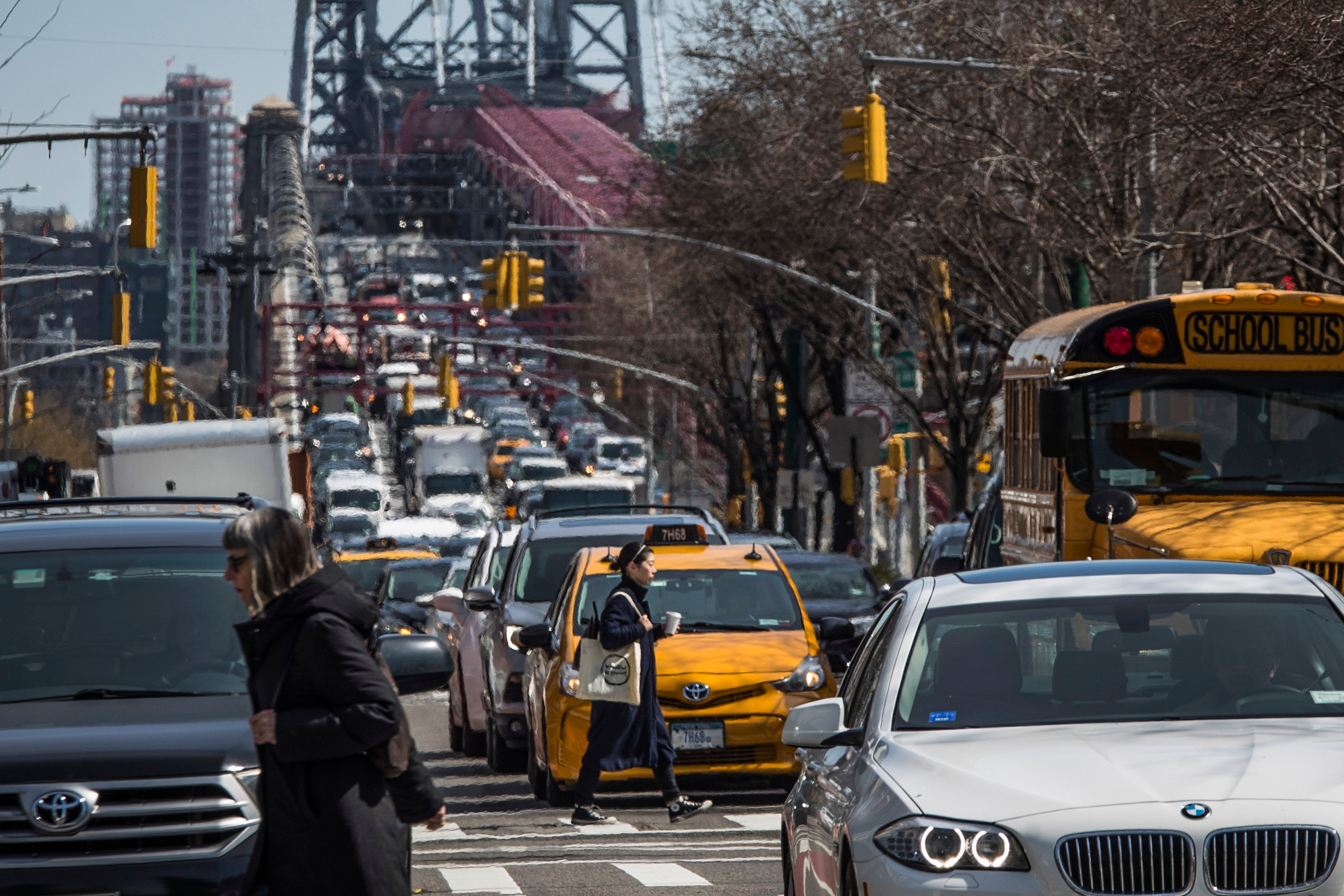Governor halts plan to charge Manhattan drivers big tolls to pay for transit and fight traffic
New York Gov. Kathy Hochul is indefinitely delaying implementation of a plan to charge motorists big tolls to enter the core of Manhattan

Your support helps us to tell the story
From reproductive rights to climate change to Big Tech, The Independent is on the ground when the story is developing. Whether it's investigating the financials of Elon Musk's pro-Trump PAC or producing our latest documentary, 'The A Word', which shines a light on the American women fighting for reproductive rights, we know how important it is to parse out the facts from the messaging.
At such a critical moment in US history, we need reporters on the ground. Your donation allows us to keep sending journalists to speak to both sides of the story.
The Independent is trusted by Americans across the entire political spectrum. And unlike many other quality news outlets, we choose not to lock Americans out of our reporting and analysis with paywalls. We believe quality journalism should be available to everyone, paid for by those who can afford it.
Your support makes all the difference.New York Gov. Kathy Hochul on Wednesday indefinitely delayed implementation of a plan to charge motorists hefty tolls to enter the core of Manhattan, just weeks before the nation's first “congestion pricing” system was set to launch.
The announcement dealt a stunning blow to a program, years in the making, that was intended to raise billions of dollars for New York's beleaguered subways and commuter rails while reducing gridlock and air pollution on the city's streets.
Hochul, a Democrat, delivered the news in a pre-recorded video statement, saying she had arrived at the “difficult decision that implementing the planned congestion pricing system risks too many unintended consequences at this time.”
She cited the city’s fragile economic recovery from the COVID-19 pandemic, as well as the financial burden that the fee would impose on New Yorkers struggling with inflation, as reasons not to go through with the program.
“A $15 charge might not seem like a lot to someone who has the means but it can break the budget of a hardworking or middle class household," Hochul said. “It puts the squeeze on the very people who make this city go.”
Hochul had previously been a vocal supporter, praising the program as recently as two weeks ago and dismissing the “backlash from drivers set in their ways” who worked to stall implementation.
Her change of heart was widely lamented by transit advocates as a betrayal of a key state environmental initiative that was expected to provide an annual cash infusion of around $1 billion for subway and bus systems that carry some 4 million riders daily.
Kate Slevin, executive vice president of the Regional Plan Association, a nonprofit advocacy group, said the move would “hurt millions of transit riders relying on improvements and hinder the economic success of our broader region.”
The plan called for people driving passenger vehicles into Manhattan below 60th Street — roughly the area south of Central Park — to pay at least $15, with larger vehicles paying more. These payments would come on top of already steep tolls for using bridges and tunnels to enter Manhattan.
The MTA had already invested tens of millions of dollars installing cameras, sensors, license plate readers and other equipment on city roadways in anticipation of the plan’s launch.
But as the start date approached, the fee touched off growing backlash — and several lawsuits — from suburban drivers and some local officials who expressed concerns about the impact on commuters. Former president Donald Trump called it a “disaster.”
Members of the MTA board, which oversees the transit agency, said they had not been briefed on Hochul's plan.
“I’m in shock,” board member Andrew Albert said. ”We won’t get new buses, new subway cars, new signals. It’s a betrayal of the millions and millions of people who would have been helped by this.”